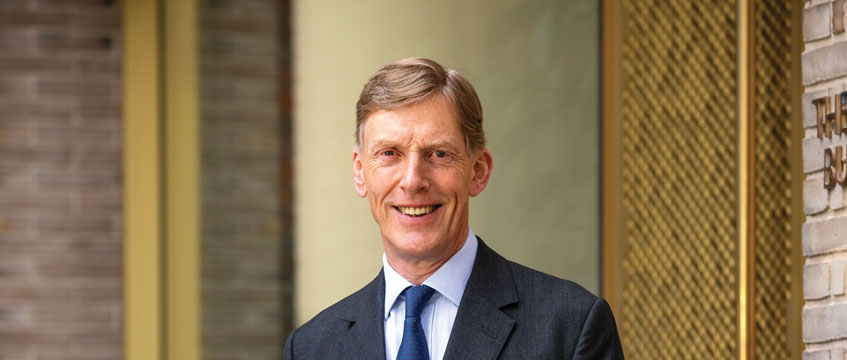Secondary office values yet to hit bottom, says Helical boss
Helical chief executive Gerald Kaye has predicted values for secondary and tertiary offices have yet to hit the bottom of the market, as further interest rate rises look set to slow.
Kaye told EG that price corrections will see values fall further, which will create opportunities for the business to snap up unloved assets at low prices. According to Kaye, Helical recycled around £230m of capital into its projects last year.
“Interest rates [aren’t] probably going to go up much more and [it] feels like the market will begin to settle,” he said. “The best-in-class will start trading, and then where values are still going to fall is the poorer-quality space, which needs expensive refurbishment to get it back up to the required standard.”
Helical chief executive Gerald Kaye has predicted values for secondary and tertiary offices have yet to hit the bottom of the market, as further interest rate rises look set to slow.
Kaye told EG that price corrections will see values fall further, which will create opportunities for the business to snap up unloved assets at low prices. According to Kaye, Helical recycled around £230m of capital into its projects last year.
“Interest rates [aren’t] probably going to go up much more and [it] feels like the market will begin to settle,” he said. “The best-in-class will start trading, and then where values are still going to fall is the poorer-quality space, which needs expensive refurbishment to get it back up to the required standard.”
Kaye added occupiers “do not want to be in old, non-compliant stock” and predicted the gap between the best and the rest will widen as values correct.
“You have got to be at the right end of the asset class,” said Kaye. “You cannot look [at the market] as a whole, you have got to look in halves. The best-in-class will do fine. Rents are rising in that best-in-class base, and falling in value is poor quality second-hand space that needs a massive amount of capex to get it back to the required standard.”
Kaye said it was the first time he had seen such a “dramatic decrease” in valuations alongside rental growth for best-in-class spaces. He drew a distinction between today’s market and that of historic downturns, where the fundamentals for prime offices have stayed strong despite the “extraordinary” rise in interest rates.
“In previous downturns – and I have seen a few of them – the correction is because of the economy getting overheated and then there is a recession,” he said. “This is not the case this time. There is actually a shortage of office space and we have not had a recession. So, the fundamentals are different.”
In terms of occupier sentiment, Kaye remains optimistic that the market will rebound. Although contracted rents fell to £39m from £46.4m during Q1, net rental income increased by 7.2% to £33.5m.
Helical’s portfolio value fell by 10.1% from nearly £1.1bn in 2022 to £839.5m in the year ending 31 March. Despite suffering a £64.5m loss, the company said its “best-in-class” pipeline puts it in a strong position.
The office owner’s vacancy rate jumped from 6.7% to 16.1% over the year, largely owing to the JJ Mack Building, EC1, achieving practical completion. Excluding that, the vacancy rate stood at 6.2%.
Looking forward, Kaye expects further opportunities to recycle capital to emerge as the market adjusts and as growing numbers of workers return to the office post-pandemic.
“We have been saying it all along. This time three years ago I was saying that offices are not dead,” added Kaye. “It is becoming clear that an organisation is far more effective if they are working together in the same place most of the time.”
To send feedback, e-mail chante.bohitige@eg.co.uk or tweet @bohitige or @EGPropertyNews











